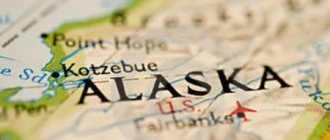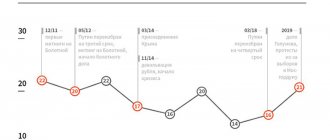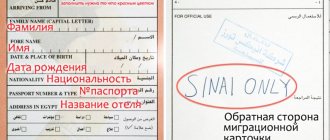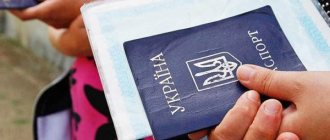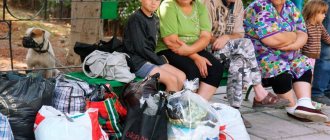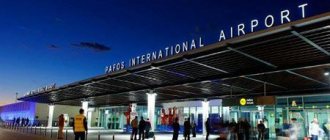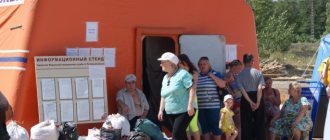Foreigners in the Dominican Republic
By mid-2021, there were 567.6 thousand international migrants in the Dominican Republic. These are all foreigners who were living in the country at that time, regardless of when they entered it. Thus, their share of the total population was 5.3%.
The main expats are Americans and Canadians. There are also many immigrants from Russia and the CIS countries in the country, and there is even a large Russian-speaking diaspora.
Everyone has their own reasons for moving, but they can be roughly divided into several categories. Firstly, a consistently favorable climate throughout the year. This is largely facilitated by the warm Gulf Stream and proximity to the equator. Secondly, high-quality and inexpensive food products: farmers cooperate with stores directly, and complex logistics are not needed. Thirdly, the Dominican Republic is one of the few countries in the Caribbean where you can still relatively easily obtain a residence permit, citizenship, a ten-year multiple visa to the United States and a Spanish passport. And the neighborhood with the USA, Mexico and Canada partly guarantees political stability. This, in turn, creates a favorable investment climate - investments in the purchase and/or construction of rental properties are the most popular in the country due to profitability and receipt of passive income in American dollars. And finally, living in the country gives children of migrants access to higher education and internships in America and Europe.
Pros and cons of living in the Dominican Republic
Dominican Republic Beach
The main feature of the Dominican Republic that attracts migrants is its simplified paperwork regime. A residence permit, which in the republic is called a sedula, can be obtained by almost anyone. Those who move to live in the Dominican Republic can freely visit some European countries, the Caribbean islands and Latin America. Citizenship opens up even more opportunities, for example, with it you can visit the United States.
The other side of the coin is that life in the Dominican Republic is not of a high level of quality. The average GDP is slightly above $6,000 per person. Trade, agriculture and the tourism business are considered the most profitable areas here, so it will be difficult for representatives of other professions in the republic.
- Another advantage of the Dominican Republic is its tropical humid climate. Even in winter, the minimum air temperature is +25°C. However, due to the subtropical climate, there is heavy rainfall from May to September. The Dominican Republic contains the lowest (Lake Enriquillo) and the highest (Duarte Peak) points in the Caribbean.
- In addition, it is famous for its abundance of picturesque vegetation, sand dunes and azure waters. The sea amazes with its mysterious underwater caves and extensive coral reefs, which can be seen when scuba diving.
- The advantages of the Dominican Republic also include the atmosphere created by the local residents and their national customs. Dominicans are distinguished by their positivity and kindness; they always treat visitors with respect. The republic has many attractions that you can visit on your own or under the guidance of an experienced guide.
The most picturesque places here are Samana Island, where you can enjoy a humpback whale show, numerous caves and parks with a lot of lush vegetation. In addition, water sports are actively developing in the Dominican Republic - jet skiing, diving, snorkeling and boat trips.
- Significant disadvantages of living in the Dominican Republic include inflated food prices compared to Russian ones. This is due to the remoteness of the republic from other states. Due to the fact that the Dominican Republic is located on an island, there are often interruptions in the transportation of drinking water; here it is customary to buy it in stores in large bottles.
- Another nuance is the high crime rate due to the large number of poor people. That is why migrants prefer to settle in the most favorable areas in order to reduce the risk of getting into unpleasant situations.
Salaries in the Dominican Republic are paid in dollars, so you don’t have to worry about the exchange rate of the local currency. Many immigrants attribute the advantages of the republic to its close location to developed countries, which opens up access to prospects. At the same time, the Dominican Republic does not attract those who plan to periodically return to their homeland, since the journey to Russia by plane will take 12 hours.
Visa regime
Russians and Ukrainians who visit the Dominican Republic for tourism purposes and for a period of up to 30 days do not require a visa. This is reported on the websites of the Foreign Ministries of both countries: here and here. Belarusians, on the contrary, need a visa, according to the Foreign Ministry website.
As for residents of Kazakhstan, information from official sources varies. Thus, on the website of the Kazakh Ministry of Foreign Affairs it is indicated that citizens of the country need a visa to enter, but on the official Dominican portals (Ministry of Foreign Affairs and embassies) they do not.
All tourists entering the territory of the state without a visa must obtain a tourist card. It can be obtained at the Dominican airport upon arrival by paying a fee of $10.
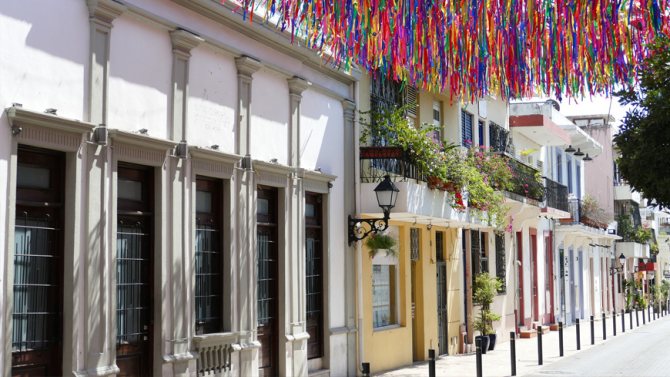
Obvious
Climate in the Dominican Republic
pros
Honestly, the Dominican climate is one big plus! At least in winter (from November to April) it is extremely comfortable here, the air temperature stays at around 28-30 C degrees, the air is neither dry nor humid, the ocean is very warm. Beautiful 3D clouds float across the sky.
I determine the comfort of the weather for myself by one single criterion - if you don’t notice the weather, then everything is as it should be. This is exactly the case in the Dominican Republic - you don’t think about being hot or cold, wet or dry. You always feel good!
Minuses
At the beginning of November there were heavy rains and there was flooding. There are also sometimes hurricanes here, but very rarely.
Types of visas to the Dominican Republic
If you still need a visa, you need to decide on its type. Depending on the purpose of the visit, this may be:
- single/multiple entry tourist visa - issued only for tourism purposes, as well as for participation in conferences, conventions and cultural events;
- single/multiple entry business visa – issued for a period of up to 60 days, if necessary extended for a year with multiple entries;
- work visa, valid for one year with the possibility of extension;
- dependent visa – available to dependents/spouses of persons holding another type of visa;
- resident visa – issued to obtain a temporary residence permit;
- student visa – issued for a year, can be extended for the period of study;
- diplomatic visa.
Extending your stay in the country
Once a temporary residence permit is obtained, it must be renewed every year. To do this, you must personally submit the appropriate application to the migration service at your place of stay 30 days before the permit expires.
You must submit the following documents with your renewal application:
- resident card;
- identification;
- photos;
- certificate of no criminal record in the Dominican Republic;
- a notarized letter signed by your guarantor in the Dominican Republic.
50 days before you become a 5-year temporary resident, you will be able to apply for permanent residence in the Dominican Republic. To do this, you will need to undergo a full medical examination again.
Reference. The first permanent residence permit will only be valid for one year; subsequent ones - for four years, with the exception of pensioners and renters, for whom the validity period will be two years.
Documents for different types of visas
Tourist
- A foreign passport with a minimum validity period of six months and copies of completed pages.
- A questionnaire filled out on a computer, which can be downloaded from the link (translation at the bottom of the sample).
- One color photograph 4*5 cm on a white background. It must be pasted into the application form.
- Certificate from place of work/study or pension certificate.
- Copies of children's birth certificates if they are traveling with their parents.
- Notarized permission from the child’s parents or guardians, if it is not the parents who are requesting a visa for a minor.
- Documents confirming solvency (bank letter, shares, etc.). A letter from the bank indicating an amount of at least $1 thousand per person. The equivalent in dollars at the time of issue of the certificate must be indicated. If you do not have a bank account and a certificate from your place of work, you must submit a sponsorship letter in free form with the signature of the sponsor and attach a certificate from the bank addressed to the sponsor (credit card statements and account statements are not accepted). If the document was issued in the DR, then it must be certified by a notary and legalized at the Prosecutor General's Office of the DR.
- Hotel reservation/letter of invitation from a person who undertakes to provide accommodation.
- Air ticket reservation/voucher from travel agency.
- Medical insurance.
For a multiple-entry visa, all of the above must be accompanied by an application addressed to the Minister of Foreign Affairs (Sr. Ing. Carlos Morales Troncoso, Ministro de Estado de Relaciones Exteriores). It should indicate your full name, citizenship, place of residence, type of activity, dates and purposes of the trip. The letter is written in free form.
Please note that for a multiple-entry visa, the validity of the passport must be at least one year.
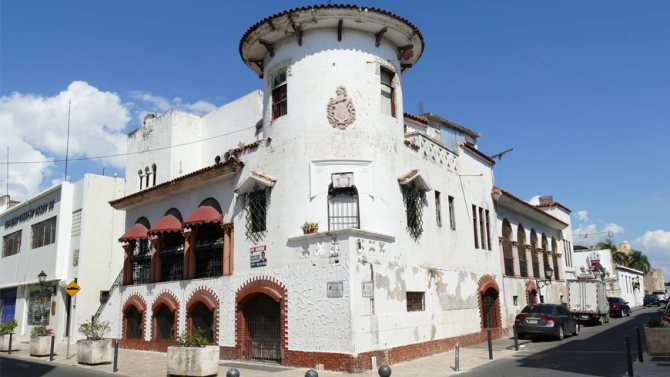
Important
All documents, except the passport, must be translated into Spanish by a legal translator, the translations certified by his signature and the seal of the translation agency.
The processing time for a tourist visa, regardless of its duration, is from 1 to 30 working days. But it can be increased if longer consideration by the Dominican Ministry of Foreign Affairs is necessary.
The cost of a single-entry visa is $115, multiple – $150. Translating one document or filling out a form – $10.
Resident
“A residence visa is issued on two grounds. Either a person has a foreign source of income in the amount of $2 thousand per month and can qualify for rentier status, or he has a registered Dominican company in active status (that is, declarations are filed and taxes are paid),” says the head of DR Rentals Online, SRL Anacaona Estate Mikhail Kunyashov.
The validity period of a foreign passport when applying for a resident visa must be at least one and a half years. In addition to the above documents, the following are required for a resident visa.
- A letter of petition issued to the consular office of the Embassy of the Democratic Republic of the Democratic Republic of the Russian Federation in the Russian Federation, requesting permission to issue a residence visa, indicating the reason.
- Non-residents of the CIS countries who legally reside in them must present a copy of the national identity (ID, foreign passport) of a citizen of the country and a legible copy of the residence permit.
- Original medical certificate (form 86) with a diagnosis of the applicant’s general health, indicating the presence/absence of infectious diseases and a certificate of drug addiction.
- Certificate of good conduct.
- A document explaining the reason why a visa is required. They can be found by following the link.
- A copy of the certificate of ownership of movable or immovable property.
- A copy of a document confirming the registration of a company in the Dominican Republic (if any) - for businessmen.
- A copy of the latest tax return from the State Tax Administration and a copy of the payslip or certificate of national registration of the taxpayer.
- A copy of the financial certificate - for businessmen working in the Democratic Republic of Germany.
Execution time from 1 to 30 working days. Visa cost $190. Legalization of one document $100 (three working days) or $130 (one working day).
Initially, all documents are submitted to the consulate. They are then examined by the Dominican Foreign Ministry.
For other types of visas there is also a list of required documents and conditions for obtaining them. You can find out more about them on the website of the DR consulate. Current changes in programs and any other additions are also published there.
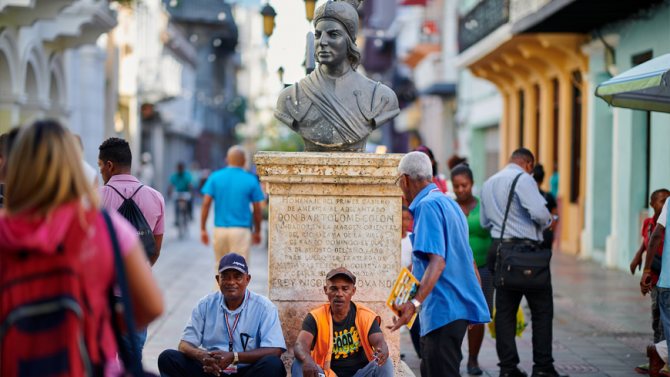
Details
Advantages and disadvantages of immigration to the Dominican Republic from Russia
According to migrant reviews, moving to the Dominican Republic is very controversial. When moving to the tropics, there are many factors to consider. To better understand the state of affairs, it is recommended to live in the republic for up to two months.
Benefits of moving:
— comfortable climatic conditions, which are divided into a couple of seasons – dry and wet;
— tropics, warm sea, excellent infrastructure for relaxation;
— salary in American dollars, there is no need to track exchange rates;
— a large number of immigration methodologies;
— territorial proximity to South and North America, Cuba, Mexico.
Disadvantages of moving:
— weak economy, no vacancies for foreigners;
— low level of security, immigrants live in different areas;
- inflated cost of living - about four hundred and thirty dollars per person, and this does not take into account rental housing;
— heat and high humidity levels in the dry season;
— distance from Russian territory, flight duration between states is twelve hours.
Methodologies for moving to the Dominican Republic for permanent residence in 2021
- investments - the main one - is the tourism industry, to issue an entry visa, the immigrant must pay an amount of one hundred fifty to two hundred ten dollars. The cost is based on the period of stay in the Dominican Republic. Investments in the economic area of at least two hundred thousand dollars. The procedure for obtaining a Sedula resident card costs from six hundred to nine hundred dollars.
- entrepreneurship or employment contract - a smooth economy has left favorable recommendations for the Dominican Republic among Russians. Due to the simplified visa regime and the availability of non-stop flights from the Russian Federation, the wave of Russian travelers has increased sharply. The logistics direction is aimed at delivering high-quality cosmetics of natural origin, rum, coffee, cocoa, and cigars. Migration to the Dominican Republic as an entrepreneur is expensive, since the registration process includes a large number of fees.
Average figures are from five hundred to one thousand dollars. Taxation is added here - one percent of the amount of the authorized capital. A work visa is issued in the Russian Federation based on an invitation. Its price is one hundred and ninety dollars.
- through the purchase of real estate - acceptable in protected areas. Brand new neighborhoods with a high level of service are being built for those moving in. On the market there are prices from thirty-eight thousand to one hundred thousand dollars, luxury housing with a huge area in the most prosperous neighborhoods, the cost varies significantly - from two hundred thousand to one million dollars. In addition, moving expenses range from five hundred to two and a half thousand dollars.
- marriage ties or the birth of babies are less attractive to Russian people. Moving and obtaining a residence permit, and later citizenship, is allowed through childbirth. The direction still has a low level of demand, but is not without a future. Self-delivery costs five hundred eighty dollars, by caesarean section – nine hundred dollars.
— The Rentier program is relevant for people of any age. To apply for entry with a residence permit, it is necessary to prove solvency for five years in advance. This refers to a rental agreement for your own home, a total account of eighteen thousand dollars or more, and other sources of passive income. To move, the monthly income for people of retirement age is one and a half thousand dollars, for other migrants - two thousand dollars.
Island life is very different from continental life, constantly confronting many unique problems. The greatest irritation is the Dominican level of service and laziness; all migration issues are resolved slowly. Gradually, a habit of this state of affairs develops, since nothing can be changed.
Residence permit and necessary documents
After receiving a residence visa and passing tests, the applicant can send documents to the migration department to obtain a residence permit. You also need an original letter from the consular office of the Dominican Embassy in Moscow, confirming receipt of a residence visa with its number and the permit number for its issuance.
A request for a residence permit must be supported by a letter of guarantee:
“I guarantee that I, full name, citizenship and passport number, will not stay in the DR longer than the period provided by the State Migration Department. I will not require residence or change of immigration status on the territory of the Democratic Republic and will work in the field of activity for which the visa was issued. I bear economic responsibility for returning to the country of origin, intending to pay any expenses in favor of the DR, including repatriation or deportation.”
It is accompanied by a declaration of the guarantor in Spanish. The guarantor’s signature must be notarized in the presence of two witnesses in the Dominican Republic and legalized at the local office of the Prosecutor General’s Office. The declaration is signed by a citizen of the Dominican Republic or a person legally residing in the country, who indicates a connection with the applicant and becomes his guarantor. He bears economic responsibility and bears the costs of deporting the applicant if the latter breaks the law.
“On average, six to seven months pass from the moment of submitting a complete set of documents to the consulate until receiving a local ID,” notes Mikhail Kunyashov.
The residence permit is issued for one year with the possibility of renewal every year for five years. To renew a residence permit, you need a foreign passport, a temporary residence card and documents confirming economic independence.
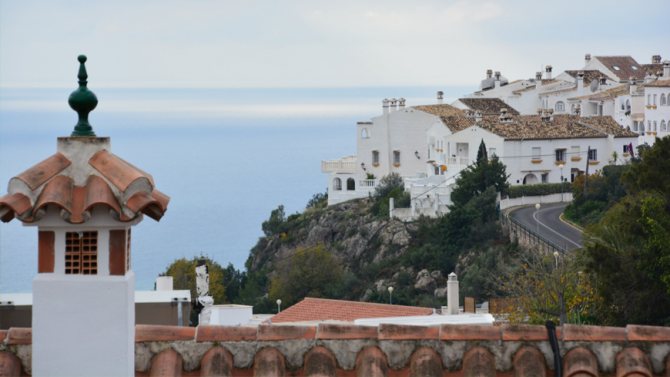
Permanent residence in the Dominican Republic
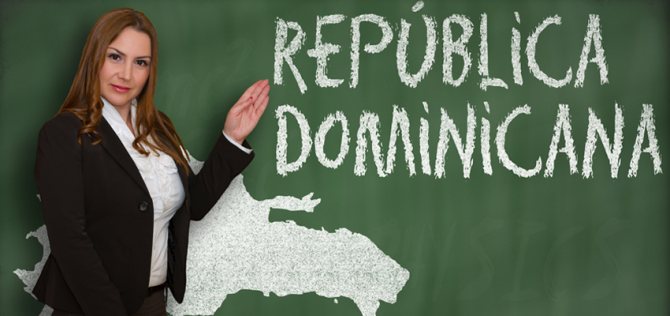
The Dominican Republic is one of the few countries in the world that kindly opens its borders to immigrants. Ideal conditions have been created here for those who want to fully live and work in the country. Immigration to the Dominican Republic is an excellent prospect for a prosperous life with the opportunity to purchase real estate, work in a well-paid position in a stable company, and run your own business. The Dominican Republic is interested in qualified specialists from various fields of activity, therefore, according to the current legislation in the country, everyone can obtain the right to Dominican citizenship, temporary residence, and a work permit.
It is enough to submit an application for residency status at the Immigration Department, which will begin the process of officially obtaining a residence permit, permanent residence and obtaining citizenship.
How can you immigrate to the Dominican Republic?
There are several effective and easy ways to immigrate:
1. Acquisition of any real estate within the borders of the republic. This is one of the easiest ways to immigrate to this country. The owner of real estate automatically receives a residence permit. If he plans to subsequently obtain the right and permission for permanent residence, then he should live for five years in the Dominican Republic. In addition, a wide range of opportunities opens up for property owners - easy employment in any desired company, and the time to obtain Dominican citizenship is significantly reduced.
2. Open your own legal business. Wide opportunities in this country open up for those immigrants who plan to engage in entrepreneurial activity. Officially registering a company in the Dominican Republic is quite simple and cheap. It is enough to employ just one indigenous person at your enterprise with a minimum wage of $200. Thus, the entrepreneur receives a residence permit.
3. Marry a native. After this, the spouse is naturally granted a residence permit, and after three years, Dominican citizenship.
List of persons prohibited from immigrating to the Dominican Republic.
In accordance with immigration rules, entry and stay in the country is strictly prohibited: Persons who are in the active stage of an infectious or mental illness, which is a serious threat to the health of the local population of the republic. The only exception to the rules are citizens who have close relatives legally residing in the Dominican Republic;
Citizens with a criminal record for serious violations and crimes;
Persons deported from the republic with a ban on re-entry.
Immigration to the Dominican Republic is a wonderful opportunity to live in a state with a favorable climate, in an ecologically clean place with impeccable flora and fauna. The economy and political situation here are stable, which is a fundamental factor for the high standard of living of the local population.
Privileges of Dominican citizenship and rules for obtaining it.
Obtaining Dominican citizenship will allow you to receive the right to medical care, education, and employment on equal terms with the indigenous residents of the republic.
In order to become a citizen of the Dominican Republic, it is not at all necessary to renounce your native citizenship - the legislation of this republic allows dual citizenship. Having a Dominican passport indicating citizenship of the republic will remove all restrictions for immigrants and will allow you to create and develop a profitable business with low tax deductions.
To obtain Dominican citizenship, you must go through three stages: 1. Obtain resident status from the Immigration Department. 2. Apply for a residence permit. 3. After a year, apply for permanent residence.
Stages of obtaining resident status.
In order to obtain resident status, you must apply for a visa at any Dominican consulate. It is strictly forbidden to submit this application while outside the country. Once the Immigration Department has reviewed the application and verified all documents provided, its representative has the right to approve or reject the residence application. After approval, the applicant receives a residence permit and an identification document giving the right to employment.
The period for obtaining residency status is on average 4-6 months from the day the application begins to be considered, as evidenced by the date and signature of the representative of the Immigration Department.
The laws of the Dominican Republic strictly prohibit the employment of citizens who do not have resident status. If, nevertheless, the employer violated the law and hired such a citizen, he will be forced to pay a significant fine, and the illegally employed employee will be subject to deportation from the country with a ban on re-entry.
Features of obtaining a residence permit and permanent residence in the Dominican Republic.
According to the current laws of this republic, all immigrants wishing to obtain a residence permit and permanent residence permit of the Dominican Republic are divided into two categories: 1. Persons who can immediately obtain permanent residence without the need to obtain a residence permit; 2. Citizens who must first obtain a residence permit, and after a year apply for permanent residence.
The first category includes the following persons: - investors who want to make significant investments in the business of the Dominican Republic, or who have the goal of opening their own business with an initial capital investment of at least 200,000 USD; — pensioners who receive a pension in the amount of 1,500 USD or more monthly to their card account; - immigrants whose monthly income reaches an average of 2000 USD - and this amount of income must be confirmed by a certificate containing data on income for the last 5 years; - applicants who have direct family ties (spouse, children) with Dominicans or immigrants with a permanent residence permit.
The duration of the Dominican Republic residence permit is one year. One month before its expiration, you must re-apply for renewal. Persons who have lived continuously in the territory of the republic for 5 years and have timely renewed their residence permit can obtain the right to permanent residence in the Dominican Republic.
Immigrating to the Dominican Republic opens up a wide range of benefits for foreigners. The laws of this benevolent and hospitable state are favorable to everyone who wants to find a second homeland in the form of the Dominican Republic, which is stable and developed in all areas. Here, every person, regardless of which country he emigrated to this republic, has the right to obtain a residence permit, permanent residence and become a full citizen of the Dominican Republic. This is an ideal state for immigration, interested in attracting new citizens. Therefore, the loyal legislation of this country allows every immigrant to feel fully at home on its territory and to obtain residency status and citizenship without difficulties. The Dominican Republic occupies a leading position in the world in the easiest and most inexpensive way to obtain second citizenship.
What does a residence permit give in the country?
| Accommodation | A foreigner can stay in the country for one year with the right to appeal to all government bodies. Also, having a residence permit in hand, you can refuse to use a national passport in the Dominican Republic |
| Visa-free travel | A foreigner has the opportunity to apply for an American visa and for visas from European countries. However, without a valid ID, embassies of other countries will refuse to issue a visa. |
| Job | With a residence permit, a foreigner has the right to legally work in the country |
| Automobile | A Dominican residence permit entitles you to obtain a local driver's license |
| Loans | Foreigners can open accounts in the country's financial institutions and receive loans |
Legalization process in the country
Citizens of the Russian Federation, as well as Ukraine, Kazakhstan, Estonia, Lithuania and Latvia do not need a visa to visit the Dominican Republic - there is a visa-free regime between the countries. All you need is a tourist card, which doesn't cost much - $10. This document allows you to stay in the country for up to 60 days without the right to work. A week before the expiration date, this permit can be renewed. After paying the state fee, you will receive a document with your last and first name, and a new period of stay in the country on a legal basis. Then you can either pay the state fee again and extend the visa, or apply for a residence permit.
You can submit a request at any time, but it will be processed after a year. If you do not submit documents for permanent residence on time, you will have to pay a fine. However, in the future this will not be a basis for refusal to obtain permanent residence. The permanent resident card has an unlimited lifespan, but must be renewed every two years. Having received permanent residence, a citizen should not leave the Dominican Republic for a year - the next 12 months are required to reside in the country.
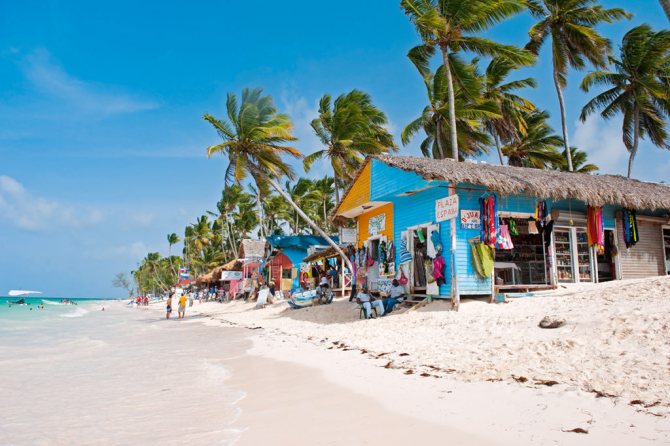
Now it’s worth talking about the documents needed for immigration. To obtain a residence permit you must prepare:
- a valid foreign passport;
- birth certificate;
- photographs (two in profile and four in front);
- certificate of no criminal record.
The following documents must also be prepared:
- when purchasing real estate – a purchase and sale agreement;
- confirmation of opening an account in a Dominican bank (three months ago);
- birth certificate translated into Spanish and notarized;
- certificate of no criminal record and marriage certificate (also translated and certified);
- confirmation of training or employment in the country;
- a copy of the internal passport of the guarantor and guarantors (there must be two of them);
- a letter from the Dominican Ministry of Internal Affairs confirming the absence of offenses;
- confirmation of payment of the fee (emigration is never free).
A request for temporary or permanent residence can be submitted by the applicant independently, although this is difficult to do without knowing Spanish.
To obtain citizenship you need the following documents:
- international passport;
- statement (in Spanish);
- sedula (copy and original);
- original copy of the document confirming permanent residence status.
You will also need to pass an interview. After six months, if the decision is positive, the foreign citizen will be provided with his own internal passport, a foreign passport required to cross the border, a birth certificate in accordance with the Dominican model and a certificate confirming citizenship.
Registration of documents and processing of an application for a residence permit requires at least six months. You will be notified by Immigration when this process is completed. A fee of 1,500 pesos is required. With an internal passport in hand, you need to register with the immigration service, pay 1,200 pesos and receive a residence permit. The permit is issued for a year. There is no right of extension.
Permanent residence can be obtained in almost the same way as a residence permit. However, fewer documents are required because some of them are already available from the immigration office. But some differences exist. So, in the application you need to indicate not a residence permit, but permanent residence. You are also required to obtain a certificate confirming that you have been in the Dominican Republic for a year with a residence permit. The right to permanent residence is indefinite – it does not need to be renewed or re-issued. During the first year, the resident must remain in the country. After 12 months, you can cross the border freely.
permanent residence
You can obtain permanent residence after five years of residence permit status. This status is issued by the migration service. Also, permanent resident status can be requested immediately if we are talking about investments.
“By investing $200 thousand or more in the country’s bonds or proving other investment plans for the same amount in business/real estate, you can consider obtaining permanent residence immediately, and not after five years in the status of a residence permit. For this process, however, you need a lawyer who will competently carry out and formalize everything.
Everything must be real - both business and investment. Investments must be confirmed by a confirmation certificate from CEI-RD or CNZFE or a bank certificate if the investment is made in banking instruments. Funds in a personal bank account are not investments.
The country has a fully electronic system of interaction between government agencies, so they have complete information about whether it is a valid business and how much money the applicant spent on purchasing real estate. In the latter case, the assessment of the property by the tax authority is extremely important,” comments Mikhail Kunyashov.
You can stay in the country for an unlimited amount of time with permanent residence, and the document itself is issued for life, subject to renewal every four years. However, many, having permanent residence, apply for citizenship.
Permanent residence permit and other opportunities
After 10 years of permanent residence, you will not need to renew your permit again and will be able to obtain a final residence permit.
After two years of being in the country with permanent residence status, you can apply for citizenship if you wish. Businessmen and spouses of Dominicans have benefits that will allow them to do this six months after receiving a residence permit.
To travel to the Dominican Republic on business matters or to apply for business benefits, you should contact the Consulate to obtain a business visa , despite the fact that Russia is included in the list of visa-free countries. Business visas are issued by Dominican Consulates in accordance with the provisions contained in Resolution No. 01-08 dated February 7, 2008 from MIREX.
Thanks to Law 8-90, you can qualify for a 15-year exemption from all income taxes, corporate, municipal, and export duties, including capitalization costs.
You can also apply for a work, student or tourist visa. More detailed information about the documents required for these visas can be found on the official website of the Dominican Consulate.
Citizenship
The application for citizenship is regulated by Migration Law No. 285-04, regulation 631-11, paragraphs 49 and 75.
“You can apply for citizenship (the naturalization process in the country) after two extended permanent residence statuses or after the first permanent residence status, if we are talking about realized and proven investments,” shares Mikhail Kunyashov.
The final stage is the issuance of a citizen’s passport. The document is requested through the Ministry of Internal Affairs and the Police, and the order itself is signed by the head of state.
A Dominican passport guarantees a foreigner all the rights and responsibilities that locals have - in the areas of employment, education, health care and others. You can also count on receiving a Spanish passport using a simplified procedure, since the Dominican Republic is a former colony of the kingdom.
The period for obtaining citizenship is about six months. When submitting documents and receiving a passport, you must be present in person and later take the oath in Spanish.
There is no need to renounce your existing citizenship.
Important
The only reliable source of information when preparing documents for different types of visas, residence permits, permanent residence, and citizenship is the Dominican Consulate. It is there that applicants are advised on all issues. However, Prian.ru expert Mikhail Kunyashov advises, in addition to this, to hire a lawyer directly in the Dominican Republic:
“The consulate provides consultations and accepts sets of documents, but all major checks of documents and their movement and approval are carried out at the Ministry of Foreign Affairs of the DR in the capital of Santo Domingo. To work with the Ministry of Foreign Affairs on the spot, an emigration lawyer is required, whom we can recommend.”
Standard of living of the Dominican population
Everyone knows about the leading direction in the tourism business. The country receives approximately eight million travelers every year from the United States of America, Canada, Europe, the Russian Federation, Ukraine, Belarus, and Kazakhstan. The industry is capable of generating the largest share of GDP, followed by sugar, coffee, tobacco, and fruits.
Approximately twelve million people live in the state, the inhabitants speak Spanish. Mulattoes predominate - seventy-three percent, the rest of the residents are people with white and dark skin.
The standard of living of the local residents is low, the GDP per person is ten thousand three hundred twenty dollars per year. Approximately forty-two percent of the Dominican population lives below the poverty line, the unemployment rate is more than fifteen percent, and for urban residents it is approximately seventy percent. There are areas in the Dominican Republic where it is better not for immigrants to wander. There is a high crime rate there.
The main reason for poverty is a weak economy, food imports - and therefore inflated prices for products, housing, and utilities.
The country's government does not pay any attention to the issue of industry diversification, unemployment reduction, and wage growth.
For this reason, before migrating, you need to be prepared that their salaries are very modest. The earnings of a Dominican are from two hundred fifty to four hundred dollars, highly qualified specialists are from five hundred to eight hundred dollars.
Pensions - one hundred fifty - three hundred dollars. Dominican life expectancy is identical to the Russian one - seventy-two years is the male age, seventy-six is the female age.
Education and medical care in government institutions are provided free of charge. Undoubtedly, there are private clinics, schools, universities and international ones.
Moving to the Dominican Republic is not possible without health insurance. It must be issued for each family member. All foreigners with residence permit status must obtain it from an accredited organization.
